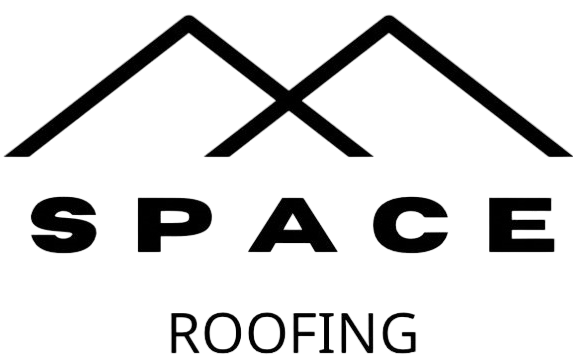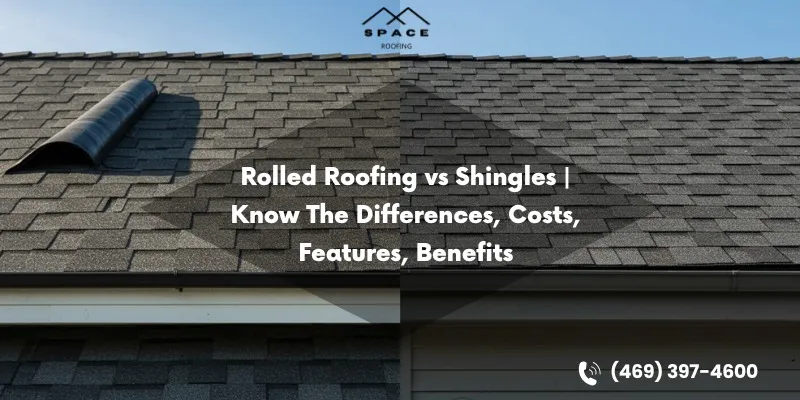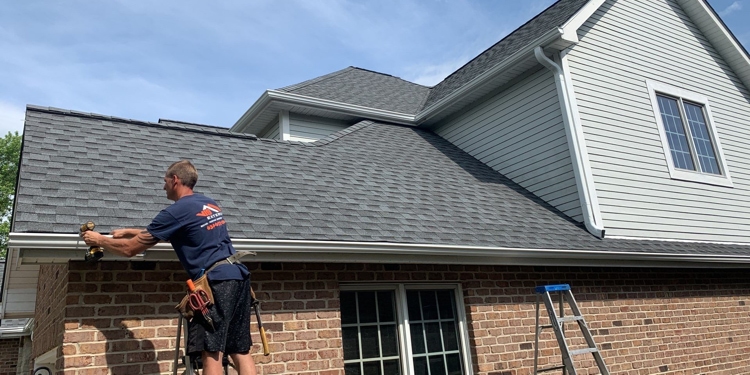If you are a homeowner looking for different types of fences or fence materials, you must be renovating or thinking of designing the outdoors. The best fence types for individuals vary due to the types of houses, garden sizes and other factors.
We will discuss the various fence styles that can provide value in terms of aesthetics, safety and privacy. Moreover, the different materials like wood fences, vinyl fences, chain-link fences, wrought iron fences, and privacy fences and how they impact your property value. Read along to find the best fence styles for your home.
Why Choosing the Right Fence Matters?
You might not understand the value of a fence till you do not buy your home or think of redesigning it. Many of us are unaware of fence benefits, and property securing fences because we never looked at this part of the hose with that concern.
Once you live in your house, you tend to grow more conscious or aware of the importance of a fence. It provides privacy and can improve property value. Moreover, you can add some curb appeal by selecting the right kind of fence for your house.
Popular Types of Fences and Their Characteristics
You will be surprised to know that there are numerous kinds of fences. You may have considered this part of the building as an accessory that has little significance, but apart from fence styles, you can select numerous fence materials.
There are different types of fences and materials like wood fences, Vinyl fences, Chain-link fences, Aluminum fences, wrought iron fences, Privacy fences, and you can also use the different styles together to augment the function of a fence in your house.
Wood Fences
The most conventional and old-fashioned style of fence is the wood fence. However, if you thought the wood fence is a simple category, you would be surprised to know that there are various kinds of wood fences, too.
You can choose between cedar, pine, and redwood as fence materials for your privacy wood fence. There are so many benefits of a wood fence that we shall discuss here:
- Durable: Wood fences are the most durable, and they can last a lifetime.
- Aesthetic appeal: Wood fences have great aesthetic appeal. You can polish them, paint them and use planks in various vertical or horizontal designs.
- Customization options: Wood fences suit a majority of houses due to the customization options. As we mentioned earlier, you can paint them differently or use different designs to suit your house theme.
Maintaining wood fences can be a task but if you are consistent in home maintenance, this step becomes easier. Here are a few maintenance tips for wood fences:
- Apply protective coating: Homeowners must apply protective coating for wood fences to avoid any decay from moisture or exposure to the sun.
- Cleaning regularly: If you clean the wood fences regularly, you can prevent decay due to debris and mildew.
- Cut any plants that grow onto the fence: Keep vegetation away from the fence to prevent moisture buildup and rot.
Vinyl Fences
Another kind of fence is vinyl fencing. This kind of fence is becoming more popular as people hardly get time to spend on cleaning and maintaining wood fences. The material is excellent for durability, which means that homeowners who do not want to spend time on their fences regularly will find this option more appealing.
Here are some vinyl fences advantages:
- Durability: The first benefit of vinyl fences is durability because this material does not deteriorate due to exposure to environmental factors such as sun, rain or dust.
- Low maintenance: Vinyl is a low-maintenance material that will not require repainting for a long time, and it will not rot if plants grow on it.
- Style options: There can be so many styles of fences if your material of choice is vinyl. Some vinyl fences nowadays are made to look like rich wood fences.
- Lower cost: Vinyl can be an economical choice as it does not get old or lose its look.
Chain-Link Fences
Chain-link fences are not as common as wood or vinyl fences in houses. However, you get to see this kind of fence in backyards or even between houses in smaller communities where privacy may not be the first concern.
Chain-link fences are used to secure a particular part of a building or separate yards to demarcate the area owned by a house owner. However, these are not the only events in which a chain-link fence is used. You can use this kind of fence in your house for affordability, but there can be a few limitations.
Here are some key features of a chain-link fence:
- Economical: The chain-link mesh used for fences can be a quick and economical way of marking your outer boundary.
- No privacy: The chain-link fence is only a loose-knit of wires, which means that people can see your front yard and home.
- Metal can rust: You have to maintain the fence if you live in a humid region because this kind of fence can get rusty.
Wrought Iron and Aluminum Fences
Wrought iron fencing and aluminum fences have several benefits. Although a wrought iron fence is much heavier and more rigid than an aluminum fence, it can look quite regal if you select a classic design.
Aluminum fences are lightweight and look very nice. Here is a comparison between wrought iron and aluminum fences:
- Wrought iron fences are known for their fancy look, whereas aluminum fences are lightweight and more affordable.
- Wrought iron fences can demand more maintenance whereas aluminum fences are quite economical.
- Wrought iron fences are hard to breach and provide greater security.
- Aluminum is available in more colors and styles and can be economical for a quick renovation.
Privacy Fences
Privacy fences are designed to seclude or isolate a place as they provide zero visibility and block the view of the house from the outside. These fences can increase security as people cannot see your home when they pass by. Best privacy fence materials include wood, wrought iron, timber, barbed wire and even wood-plastic composite.
Here are some features that you can explore for privacy fences:
- You can get privacy fences made of wood, iron, and vinyl.
- The design of privacy fences is usually a complete screen, offering no visibility.
- Barbed wire privacy fences offer visibility, but they can be used in places where trespassing is not allowed, even if the house or building is visible to people.
Fence Comparison Table: Materials, Cost, Durability, and Best Uses
| Fence Type | Durability | Maintenance Level | Average Cost (per linear ft) | Best For | Pros | Cons |
| Wood | Moderate (10–15 years) | Moderate | $15 – $30 | Privacy, aesthetics | Natural look, customizable | Requires upkeep, weather-sensitive |
| Vinyl | High (20+ years) | Low | $20 – $40 | Low maintenance, modern | Durable, easy to clean | Higher upfront cost |
| Chain-Link | High (15–20 years) | Low | $7 – $15 | Security, budget | Affordable, durable | Low privacy |
| Wrought Iron | Very High (20+ years) | Moderate | $30 – $50 | Decorative, security | Strong, classic design | Expensive, prone to rust |
| Aluminum | High (15+ years) | Low | $20 – $40 | Lightweight security | Rust-resistant, lightweight | Less sturdy than wrought iron |
| Privacy (Various) | Varies | Varies | Varies | Seclusion, noise reduction | Enhances privacy | Cost varies widely |
How to Choose the Right Fence for Your Property?
When choosing fence types, you should consider the type of house, your use of the front yard and even the maintenance level that you can provide. Here are some fence selection tips for homeowners who want to know how to consider their needs before selecting:
- Budget: Look for a fence that suits your budget so that it does not turn out to be a problem! Every homeowner has a set budget, and you can find options within the range that suits you.
- Purpose: Are you looking for an aesthetically pleasing fence, or do you want to focus on security and seclusion? The kind of material and design you select depends on what the purpose of the fence should be.
- Maintenance: The maintenance level of a fence is what makes it the best choice. If you live in a rainy region, you might not want an iron fence. However, if you grow a lot of plants, wood fences might not be the perfect fit.
- Style: Every house has a theme, and you must select a fence that matches the style.
- Property regulations: Are there any property regulations in your community? Do you have to have fences of a particular height or material? Follow up on the laws and policies of the area where you live and get a fence that complies with all the policies.
Fence Installation and Maintenance Tips
You can maintain your fence by implementing a consistent cleaning routine. Moreover, installing fences can be a DIY project if you are careful and follow the steps properly. We have shared some tips here for you to ensure safe fence installation and effective fence maintenance:
- Clean the fence regularly.
- Trim plants and vegetation around the fence.
- Waterproof the fence by using a sealant or an anti-rust and weather-resistant paint.
- Remove dust and rust from your fence to ensure longevity.
- Use the best materials (nails, shovels and fasteners) to ensure that the installed fence holds the ground.
- Get expert help to ensure a strongly bound fence is in place.
Fence Costs: What to Expect
Fence costs can vary for individual homeowners due to the material and size of the fence being installed. Moreover, the labor cost will also vary.
The fencing price per linear foot can be between $20 and $60, which means that an average-sized house fence can cost between $4000 and $12000. If you want to get the job done fast, you will need more labor, which means you will have to pay more.
Frequently Asked Questions About Fences
What is the most durable fence material?
The most durable fence material is wrought iron and vinyl. The sturdiness and longevity of these materials are impressive, and they do not require high maintenance.
How much does fence installation cost in Dallas?
The cost of fence installation in Dallas depends on the material, size, and complexity. For example, wood and vinyl fences typically cost more than chain link or wire fences. Get quotes from providers for an accurate estimate.
How long does fence installation take?
Fence installation can take between one and four days, depending on the size, fence type, complexity, and area to be covered. If we talk about Professional vs. DIY, having so much experience a professional can install the same fence in less time than a general individual.
Do I need a permit to install a fence?
Yes, you will need a permit for fence installation as they can impact public safety, property values and compliance with community standards.





